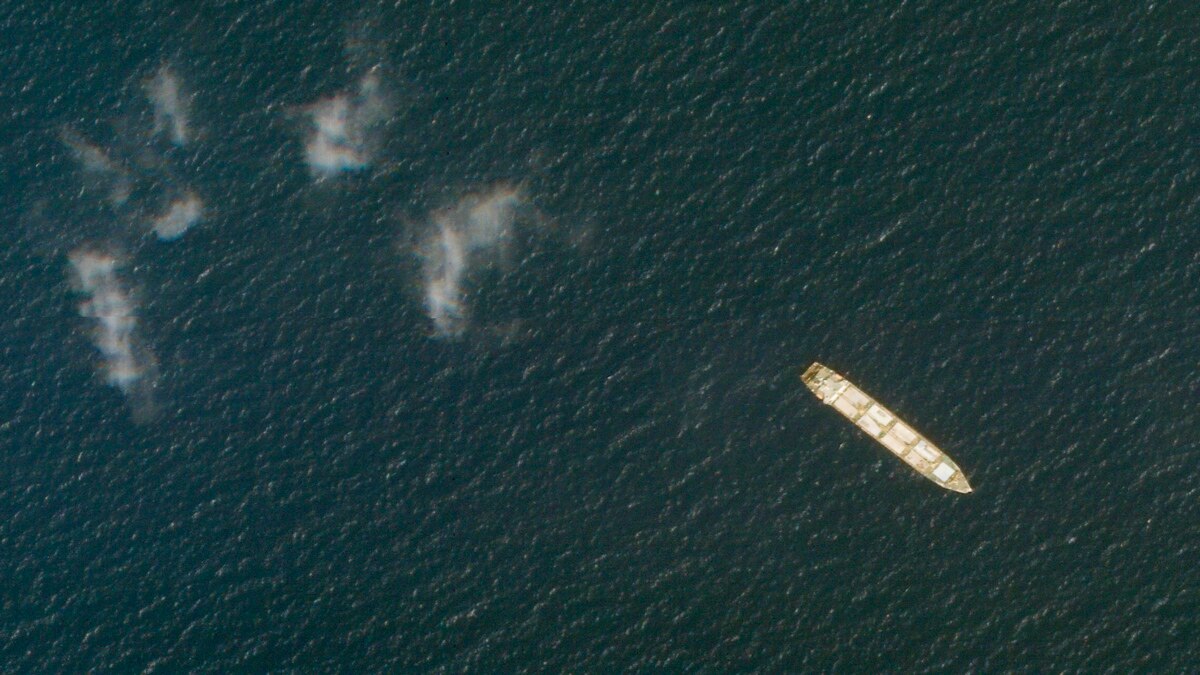
An Iranian ship long anchored off Yemen and used by the Islamic Revolutionary Guards Corps (IRGC) has reportedly been damaged by an explosion in the Red Sea.
The hard-line Tasnim news agency, which is affiliated with the IRGC, reported late on April 6 that the vessel, a cargo-category ship identified as Iran Saviz or MV Saviz, was targeted on April 6 by a mine that was attached to it.
It said the ship “has been stationed in the Red Sea for the past few years to support Iranian commandos sent on commercial vessel [anti-piracy] escort missions.”
Earlier, Saudi broadcaster Al Arabiya quoted unidentified sources as saying the vessel was attacked off the coast of Eritrea and was affiliated with the IRGC.
Iranian officials did not immediately comment on the reports, which followed a reported series of attacks on Israeli- and Iranian-owned cargo ships since late February in which the two archenemies accused each other of responsibility.
But Iranian state television later tacitly acknowledged the incident, citing foreign media.
The New York Times cited IRGC-linked social-media accounts alleging that Israel had carried out the attack. The newspaper noted that Israel had not confirmed that information.
But it quoted an unidentified U.S. official as saying that Israel had informed the United States of its role after the early morning attack on April 6.
The incident comes amid years of naval skirmishes between Iranian, Israeli, and Western forces. But it also coincided with the start in Vienna hours later of tense international talks involving the United States, Iran, and other countries intended to revive the 2015 Joint Comprehensive Plan of Action (JCPOA) nuclear deal that Washington withdrew from nearly three years ago.
U.S. President Joe Biden took office in January with a commitment to revive that deal if Tehran returned to full compliance.
Iran has responded to the reimposition of crippling U.S. economic sanctions by gradually reducing its commitments under the accord.
Israel has been a strident critic of the JCPOA, which aimed to ease economic sanctions on Iran in return for curbs on Tehran’s disputed nuclear program.
“We must not go back to the dangerous nuclear deal with Iran, because a nuclear Iran is an existential threat to the state of Israel and a great threat to the security of the entire world,” Israeli Prime Minister Benjamin Netanyahu told party colleagues on April 6 after being picked to form a government following inconclusive elections.
The Saviz was placed back under U.S. sanctions by Donald Trump’s administration following the JCPOA withdrawal in 2018.
The U.S. military’s Central Command said it was “aware of media reporting of an incident involving the Saviz in the Red Sea,” adding, “We can confirm that no U.S. forces were involved in the incident.”
Representatives from Britain, China, France, Germany, and Russia met with Iranian officials in Vienna on April 6 in an effort to revive the deal.
Iranian and U.S. officials called the meetings “constructive.”
With reporting by The New York Times, Tasnim, AP, and Reuters
This post was originally published on Radio Free.